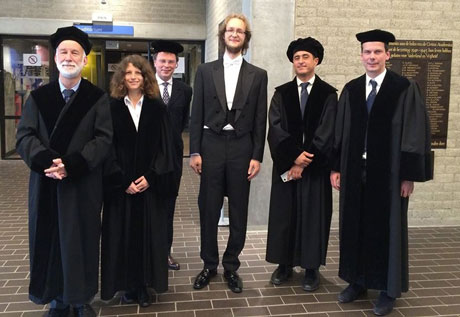
Research shows that consideration for others does not always lead to the best outcome - that is, when it’s applied in game theory. Bart de Keijzer (CWI) studied algorithms for game theory, with a focus on cooperative aspects. He defended his PhD thesis ‘Externalities and Cooperation in Algorithmic Game Theory’ on 16 June at VU University. His research results can have applications in data and traffic networks, peer-to-peer networks and GSP auctions, such as used by Google Adwords.
In conventional models it is a common assumption that players are only interested in themselves. However, in real life players are also influenced by others. De Keijzer investigated the impact of cooperation, friendship and animosity on different games. One of his conclusions is that when players behave altruistic, the flow in a road or data network can become worse. “It’s a remarkable result that for the mathematical concept of social welfare, one can sometimes better choose at the expense of others, than to change the strategy to please them,” the researcher says.
With these more realistic models researchers and policy makers can make better qualitative predictions. Other research results from De Keijzer, who is now working at the Sapienza University of Rome, have applications in procurement auctions, treasury auctions, spectrum auctions and the allocation of housing. See also http://bart.pakvla.nl/










